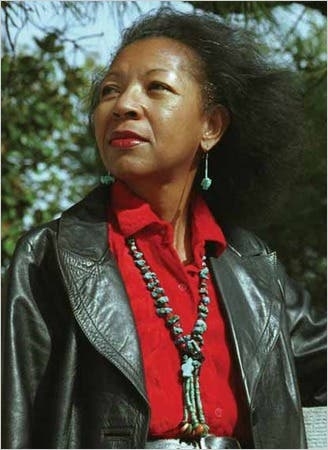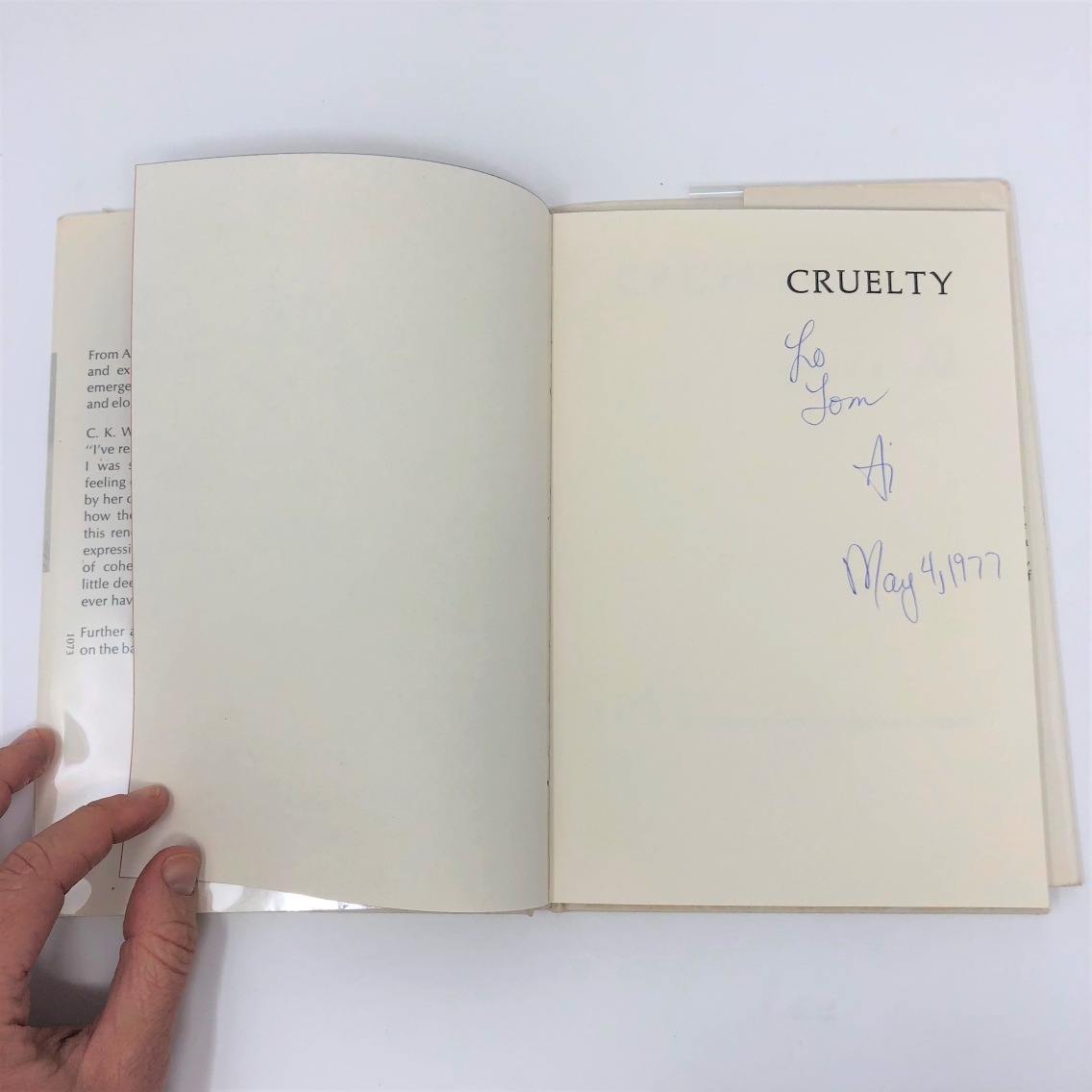Ai, an Indigenous Poet You Should Know
Ai Ogawa was a National Book Award-winning poet. In a 1978 essay published in Ms. Magazine, she described herself as ½ Japanese, ⅛ Choctaw-Chickasaw, ¼ Black, Irish, and Southern Cheyenne and Comanche.
Ai grappled with this not-quite-adding-up-to-a-whole identity in her poetry by assuming the narrative voice of the disenfranchised and marginalized, as well as that of a variety of historical figures (Marilyn Monroe, Lenny Bruce, Joseph R. McCarthy, and Elvis Presley, to name a few).

Source: New York Times
Born Florence Anthony in Albany, Texas in 1947 (but best known by her pen name “Ai” (愛), or “love” in Japanese) Ai studied Japanese at the University of Arizona and creative writing at the University of California, Irvine. She wrote poetry that was often dramatic, violent, and critical of American social conditions.
Ai published her first book of poetry, Cruelty, in 1973. It included poems like “Woman to Man”which— according to the Times Literary Supplement—captured “the cruelty of intimate relationships and the delights of perverse spontaneity.”
Woman to Man
Lightning hits the roof,
shoves the knife, darkness,
deep in the walls.
They bleed light all over us
and your face, the fan, folds up,
so I won’t see how afraid
to be with me you are.
We don’t mix, even in bed,
where we keep ending up.
There’s no need to hide it:
you’re snow, I’m coal,
I’ve got the scars to prove it.
But open your mouth,
I’ll give you a taste of black
you won’t forget.
For a while, I’ll let it make you strong,
make your heart lion,
then I’ll take it back.
Middlebury owns an inscribed first edition copy.

Ai published several volumes of poetry during her lifetime, including The Killing Floor (1979), Sin (1986), Greed (1993), and National Book Award winner, Vice (1999).
Our bookish celebration of Indigenous Peoples’ Day started on Instagram. Check out Leslie Marmon Silko’s Sacred Water here.
Check out our post about Sarah Winnemucca here.
Questions? Email specialcollections@middlebury.edu
Sources
Fox, Margalit. Ai, a Steadfast Poetic Channel of Hard Lives, Dies at 62 New York Times. March 27, 2010.
Ai. Poetry Foundation.

